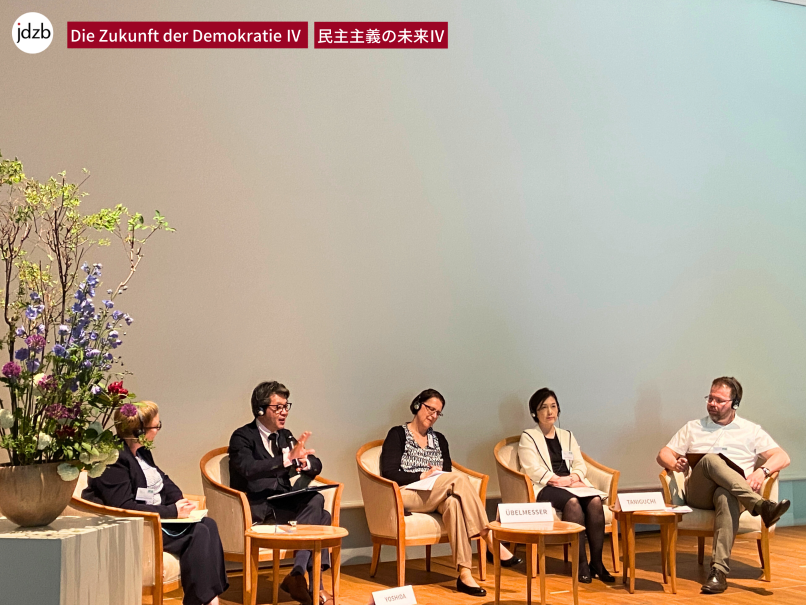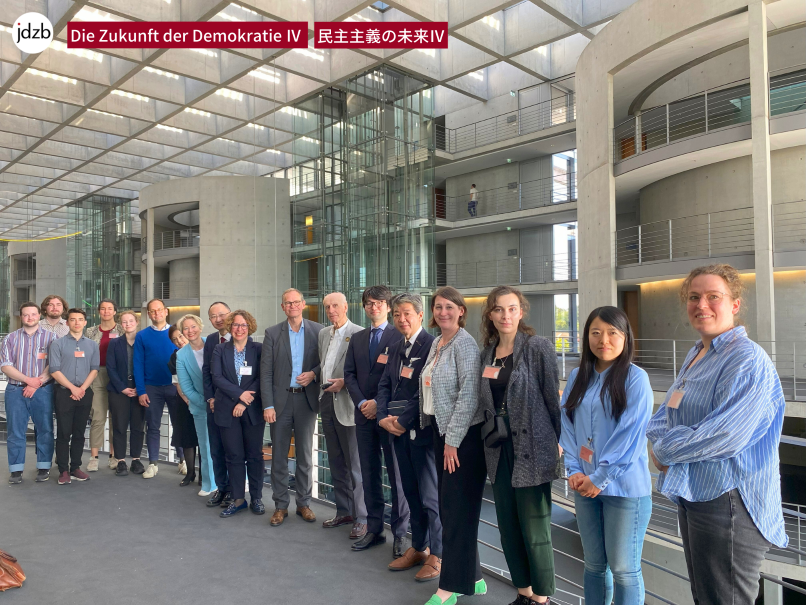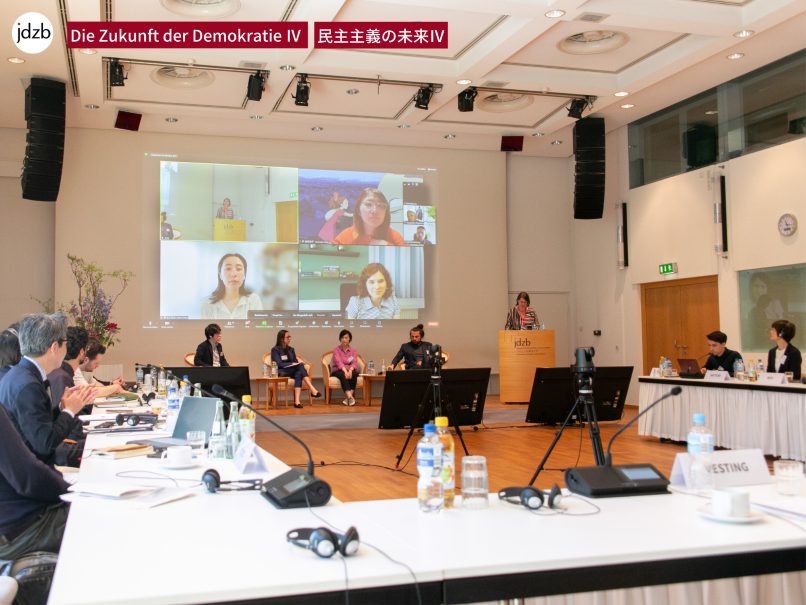Round-up: Liberal Democracies under Demographic Pressure: Insights from Germany and Japan (14.-16. May 2024)
18th June 2024
In the 4th edition of its series “The Future of Democracy”, the JDZB held a three-day conference from May 14-16, 2024, titled “Liberal Democracies under Demographic Pressure: Insights from Germany and Japan”. The conference was realized in cooperation with Prof. Dr. Gabriele Vogt, Director of the Department of Asian Studies at the Ludwig-Maximilians-Universität (LMU) München and her research team. It is also part of the research project „Demography and Democracy: How Population Aging Alters Democracy - The Case of Japan“ at LMU München, which is supported by the German Research Foundation, DFG.
Distinguished scholars gathered to intensively discuss the impact of demographic change on democratic systems, with a particular focus on youth representation and participation in aging societies.
The conference started out with a kick-off event on May 14, which was honored by the presence of H.E. Hidenao Yanagi, Ambassador of Japan in Germany, who held a welcome address. In his keynote speech, Prof. Dr. Achim Goerres (Universität Duisburg-Essen) dismantled “The false myths about politics in ageing democracies”, and his findings were further illuminated during the subsequent panel discussion joined by Prof. Naoko Taniguchi, Ph.D. (Keio University), Prof. Dr. Silke Übelmesser (Friedrich-Schiller-Universität Jena) and Prof. Toru Yoshida, Ph.D. (Doshisha University) and moderated by Prof. Dr. Verena Blechinger-Talcott (Freie Universität Berlin). A lively exchange with the audience followed during Q&A and reception.
On the following day, invited speakers, selected guests and research team members engaged in a lively exchange of views on political attitudes, behavior, and participation of youth in Japan, Germany and Singapore. During the afternoon, they met with Ms. Lena Groh-Trautmann, Managing Director of Servicestelle Jugendbeteiligung e.V. (Service Center Youth Participation) who introduced the association's manifold activities and explained her view on the participation of the young in the German society.
As a highlight of the conference, the invited speakers were welcomed by the German-Japanese Parliamentary Friendship Group and its Chairman, Mr. Michael Müller (MdB), at the German Bundestag to engage in a lively discussion about a broad range of effects of demographic change in the German and Japanese societies.
The last day was opened by the hybrid panel discussion “Voices from practitioners” with young politicians and activists from Japan and Germany: Panelists were Tobias B. Bacherle (Bündnis 90/Die Grünen), member of the German Bundestag, Maren Busch, mayor of the municipality of Diez, Momi Sako, local politician of the city of Musashino, and Momoko Nojo, founder and executive director of No Youth No Japan.
One central question that emerged during the discussion was: "How do you reach the apolitical young people?", and panelists emphasized that one needs to keep approaching young people and to keep on communicating why political engagement is worthwhile.
It became clear that factors for the low level of engagement among young people include a strong focus on school education, studying and work and, in particular, the critical question of self-efficacy and frustration. Commitment must be valued more and processes must be accelerated until concrete results are achieved, according to some key statements from the discussion.
In the final session, all participants reflected on “Ways forward for super-aging democracies” by raising fundamental questions such as the meaning of democracy and its change, agents of democracy change, and the value of self-efficacy as a possible core principle of democracy.
The JDZB would like to thank all invited speakers and guests, our cooperation partner Prof. Dr. Gabriele Vogt and her team from Japan-Center at Ludwig-Maximilians-Universität (LMU) München, as well as the German Research Foundation, DFG. Moreover, JDZB is deeply grateful to the German-Japanese Parliamentary Friendship Group and the German Bundestag for warmly receiving our delegation.
Photo Galleries


